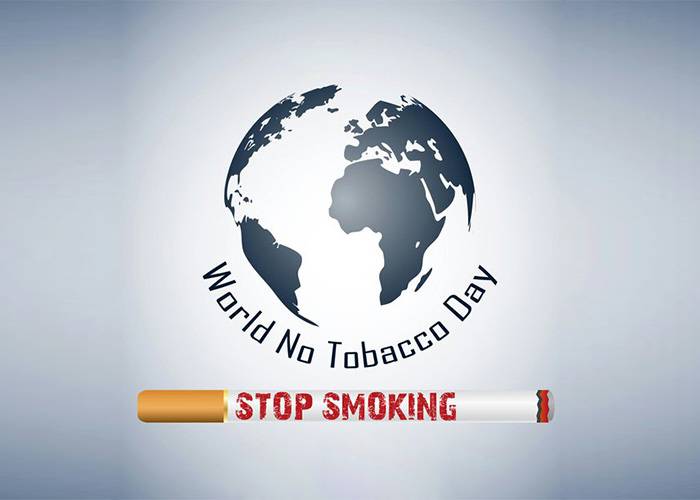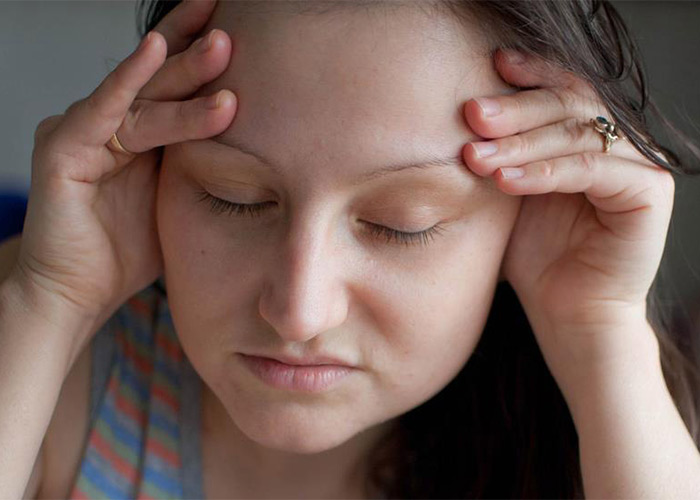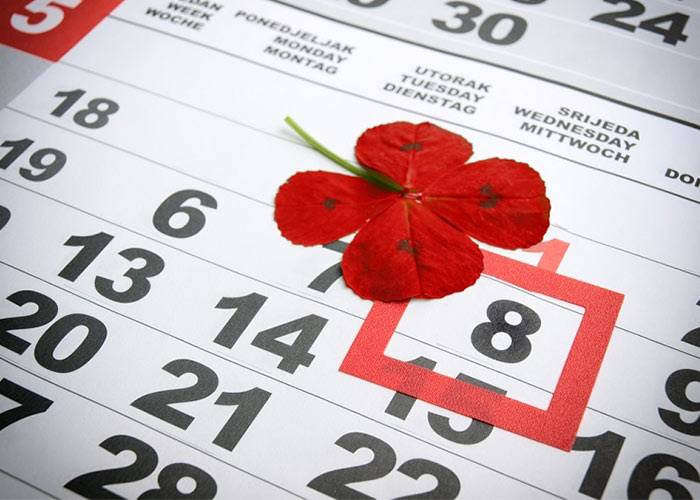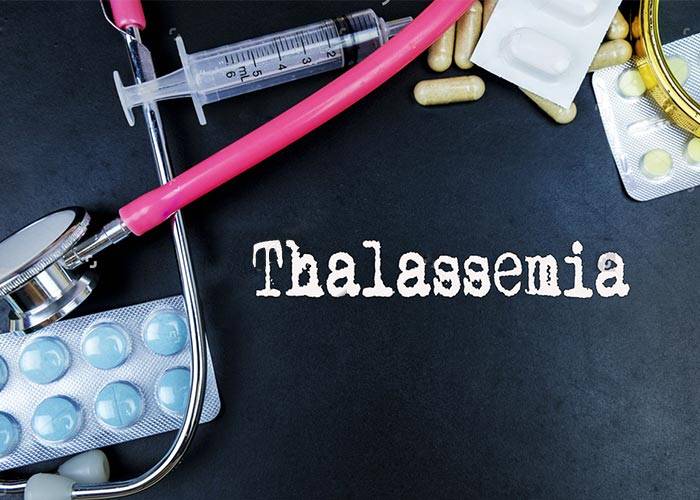The Zero Discrimination Day was first observed worldwide on 1st March 2014. The day was observed by the United Nations with all its partners and UNAIDS – a joint program of United Nations to combat AIDS (Acquired Immune Deficiency Syndrome) pandemic.
The Zero Discrimination Campaign was first launched by UNAIDS on world AIDS day in December 2013, to raise awareness against the discrimination of patients infected with HIV (Human Immunodeficiency Virus) which causes AIDS.
Zero Discrimination Day was launched on 27th February 2014 by UNAIDS Executive Director Michel Sidibe at a major event in Beijing, China.
Zero Discrimination Day 2025
Zero Discrimination Day 2025 will be observed on Saturday, 1st March 2025.
Last year, UNAIDS and NACA (National Agency for the Control of AIDS), Nigeria called for safeguarding the legal rights against HIV discriminations. Various campaigns and processions were also carried out to end the discrimination against the people living with HIV.
UNAIDS also urged the international community to change the laws in their country so that it provides a better environment to the people living with HIV so that they can live their life with dignity and respect.
Events of the Launch of 2014 Zero Discrimination Day
Michel Sidibe, Executive Director of UNAIDS launched the “Zero Discrimination Day” at a grand function in Beijing, China on 27th February 2014.
The event was supported by the Government of China, the China Red Ribbon Foundation and the Hanergy Holding Group, China. China Red Ribbon Foundation runs orphanages for children in China, whose parents have died of AIDS. Hanergy Holding Group is Chinese Multinational privately owned Renewable Energy Company. Many representatives of civil society and celebrities were also present at the event.
In the events a need to eliminate all kinds of discriminations – gender based, sex based, ethnicity based, disease based, physical disability based or based on the sexual orientation; prevalent in the society was stressed upon.
The opening remarks of the Zero Discrimination Day in Beijing were given by – Mr. Michel Sidibe, Executive Director of the UNAIDS; Mr. Li Hejun, Chairman and CEO of Hanergy Holding Group and Mr. Gu Yanfen, General Secretary of the China Red Ribbon Foundation.
A Panel discussion was held on discrimination with Mr. James Chau; news anchor and UNAIDS National Goodwill Ambassador in China, hosting the discussions.
Mr. Michel Sidibe stressed on the need to work together to achieve the goal of zero discrimination and that everyone has a right to health and dignity.
Many celebrities recorded messages with the symbol of Zero Tolerance Day – Butterfly, to spread awareness against discrimination. Those present included – Annie Lennox, UNAIDS Goodwill Ambassador; International Football star, David Luiz; Her Serene Highness Princess Stephanie of Monaco.
Major announcements about the worldwide events of Zero Discrimination Day to be held on 1st March 2014 were made.
Why is Zero Discrimination Day Celebrated?
Everyone has a right to equality and dignity irrespective of his/her gender, religion, sexual orientation, physical appearance, age or other attributes. But, despite laws banning any kind of discrimination across the world; it is still prevalent in many societies and is being practiced since ages.
People are discriminated around the world based on their sex, sexual inclinations, physical disability, ethnicity, age or language. Many people are discriminated based even on where the live or what they do for living.
Discrimination obstructs growth and the world’s progress towards an equal and just society. The Sustainable Development Goals of equality and zero discrimination are also a distant dream as long as discrimination is prevalent in society.
A study on discriminations based on sexual orientations revealed that 80 countries have banned same sex relationship under law. Small number of countries practicing Sharia as a legitimate law, have a provision of death penalty for homosexuality; which is a serious human rights violation.
Transsexual people are also subjected to discriminations in their every day affairs. 65% of transsexual persons have reported unfriendly interactions in health sector; refraining them from seeking health advice or facilities. Also, 64% of patients suffering from mental disorder have experienced discrimination.
Discrimination exists hugely in healthcare sector, with HIV/AIDS patients as the worst sufferers. People with HIV/AIDS are out casted from their own community; living a desolate and lonely life. Even hospitals are hesitant in admitting and tending to the patients with HIV/AIDS. People avoid any kind of physical contact with the infected and they don’t have access to basic medical assistance.
According to a study conducted by UNAIDS, around 38 countries have imposed restrictions on travelling of people with HIV/AIDS.
Another form of discrimination prevalent in the society is gender discrimination. Women lack behind men in the fields of education, employment or social status. They are under paid and in many communities are not allowed to make major family decisions.
Keeping in mind all the above mentioned discriminations, as well as those which are not mentioned here; UN in collaboration with UNAIDS and all the members observes Zero Discrimination Day on 1st March annually to raise global awareness against discrimination and reach the goal of zero discrimination. Zero discrimination is an absolutely necessary for a equal and just society and for United Nations Sustainable Development Goals.
How is Zero Discrimination Day Celebrated?
Organizations like United Nations and UNAIDS organize various programs on the day to promote everyone’s right to dignity and a decent living. Issues like gender inequality; discrimination based on sexual inclination; discrimination based on age, religion or ethnicity; discrimination of HIV/AIDS infected people are addressed and an appeal to eliminate discrimination is made.
Private sector also plays an important role in the celebration of Zero Discrimination Day. Telecom providers across the globe spread the message of ‘Zero Discrimination’ by sending text messages or recorded calls. Approximately 3.5 Million Airtel subscribers in Malawi, southeast Africa were send text messages of ‘Zero Discrimination’ on the first celebration of the Zero discrimination Day on 1st March 2014.
People across the world participate in debates and speeches on the areas of discrimination and propose feasible solutions to eliminate them.
Events across the globe are organized for people suffering from HIV/AIDS. General awareness about the disease is raised and people informed that a kind touch or physical contact with the patient can’t get them infected. People are asked to show kindness and support to the people with HIV/AIDS.
Issues like religious discrimination are addressed and the communities are appealed to live in harmony and peace. Interactive sessions are organized between different religious communities to decrease the ideological differences and to remove misunderstanding.
An appeal by the UN is made to the countries to make necessary policy changes to eliminate any kind of discrimination prevalent in the societies.
Even small issues like bullying at schools and offices are addressed. Various programs are organized globally to educate teachers and parents to identify the signs of bullying and how to counter it. Children are made aware of the fact that no one could be discriminated on the basis of physical appearance, shyness or ethnicity.
The bottom line is that the Zero Discrimination Day could be celebrated by an individual or a community to fight any kind of discrimination that they witness and also to raise their voice against it.
What is the Symbol of Zero Discrimination Day?
“Butterfly” is the symbol of Zero Discrimination Day. The symbol is widely used by people to share their photos and videos to express their solidarity towards eliminating discrimination.
“What if”…….Zero Discrimination Day 2018
Zero Discrimination Day 2018 was celebrated on Thursday, 1st March 2018 with the theme – “What if ….” The theme appeals to people to assess their own behavior in different situations that would test their belief on discrimination.
What if your watchman has tuberculosis? Would you still care to chat with him during a morning walk?
What if your best friend is tested positive with HIV? Would you still want to spend the weekend with your best friend?
What if you met a child whose both parents are HIV positive? Would you still hold the child in your lap and play with her/him?
Questions like above were raised to the general public and they were appealed to shun discrimination and various taboos and myths in the society fuelling it.
Agencies had organized many programs across the globe to send the message that allowing discrimination to exist is a violation of a person’s right to free and dignified living.
The need of zero discrimination to achieve an equal society and to eliminate AIDS pandemic was stressed.
Activities for the Zero Discrimination Day
1) Pick up a Cause
Pick up a specific area of discrimination prevalent in your society or community. If you have witnessed discrimination based on a person’s age, sex, color, religion, ethnicity, sexual orientation etc. resolve to raise your voice against the discrimination and to provide support to the victims.
2) Garner Support
Garner support of influential persons or elders in your community to fight against prevalent discriminations. Respected elders and influential persons can transform the mindset of a community and could play a vital role in eliminating discriminations. Get their support and organize gatherings where they express their views against discrimination.
3) Spread Awareness
Spread awareness about the ill effects of discrimination. Inform people that discrimination is a human rights violation and also devoids a person or a community of a decent and dignified living. Any discrimination towards anyone obstructs the growth of not only the victim but also the society as a whole.
4) Post Your Own Message
You can use your social media accounts to spread awareness and to express your views on discrimination. Form your own message and post it to let the world know your views and acknowledge the need to achieve zero tolerance for a equal and progressive society.
5) Make Your Own Butterfly
Butterfly is the globally accepted symbol of Zero Discrimination Day. Make your own butterfly with paper or card board and post your pictures with the butterfly with your message written on it. You can also record your video, holding a butterfly and delivering a message to spread awareness or to express your solidarity or give your support to the cause.
5) Help People With Medical/Physical Conditions.
People with medical ailments and physical disabilities are subjected to discrimination across the world. People suffering from HIV/AIDS face a lot of discrimination in society. People with certain physical disabilities are also looked down upon in some societies and are denied equal rights. Reach out to such people to extend your support and show compassion towards them.
6) Spread Awareness About AIDS.
People suffering from HIV/AIDS face the worst kind of discrimination. They are rejected by their own community and are denied even normal conversation, fearing the spread of AIDS epidemic. People have a misconception that the AIDS virus could spread by shaking hands or a normal physical contact. You can spread awareness about the disease insisting the fact that the disease is only communicable through unprotected sex or reuse of injecting equipments.
7) Educate Children
Children are the future of a society. It is very important to make them aware about the ill effects of discrimination and how it restricts the growth of a society as well as nation. Organize a program in your community’s schools, with the help of volunteers and NGOs; interacting with the children and professing the need for a equal and a just society for peaceful co-existence.
8) Donate and Collect Funds
Fighting for a cause many need funds to mobilize and organize resources. Contribute your bit by donating or collecting funds for the fight against discrimination and also to help the victims of discrimination. Money thus collected can be donated to a hospital tending HIV patients or could be given to the dependents of patients.
9) Tell your Story
Speak out against discrimination and speak out loud, without any fear or hesitation. If you have witnessed the discrimination for yourself or have watched someone else facing discrimination; speak out and tell your story to the rest of the world. Tell them about the effects of discrimination on the lives of those affected. Let the world know about your own or other’s fight against discrimination and admire their efforts.
10) Take The Pledge
Take the pledge to Zero Discrimination on the day and also inspire others to fight against any kind of discrimination. Take some time out from your daily routine in your schools, colleges, offices etc and organize pledge taking events.
Themes for the Zero Discrimination Day
- Zero Discrimination Day Theme of 2025 is – yet to be announced.
- Zero Discrimination Day Theme of 2024 was – “To protect everyone’s health, protect everyone’s rights”
- Zero Discrimination Day Theme of 2023 was – “Save lives: Decriminalise”
- Zero Discrimination Day Theme of 2022 was – “Remove laws that harm”
- Zero Discrimination Day Theme of 2021 was – “End inequalities”
- Zero Discrimination Day Theme of 2020 was – “Zero Discrimination against Women and Girls”
- Zero Discrimination Day theme of 2019 is – “Act to Change Laws that Discriminate”.
- Zero Discrimination Day Theme of 2018 was – “What if…….”
- Zero Discrimination Day Theme of 2017 was – “Make Some Noise For Zero Discrimination”.
- Zero Discrimination Day Theme of 2016 was – “Stand Out”.
- Zero Discrimination Day Theme of 2015 was – “Open Up, Reach Out in Order to Celebrate Diversity and Reject Discrimination In All Its Forms”.






